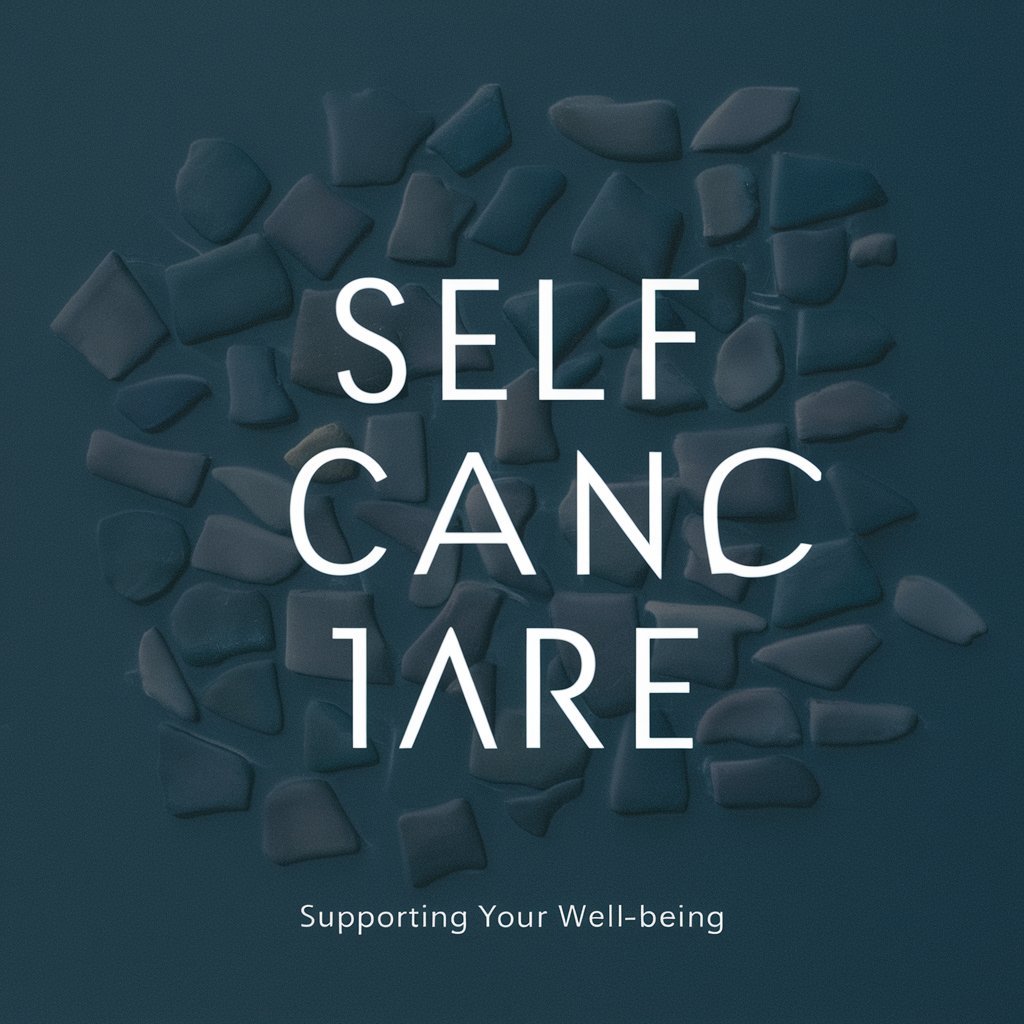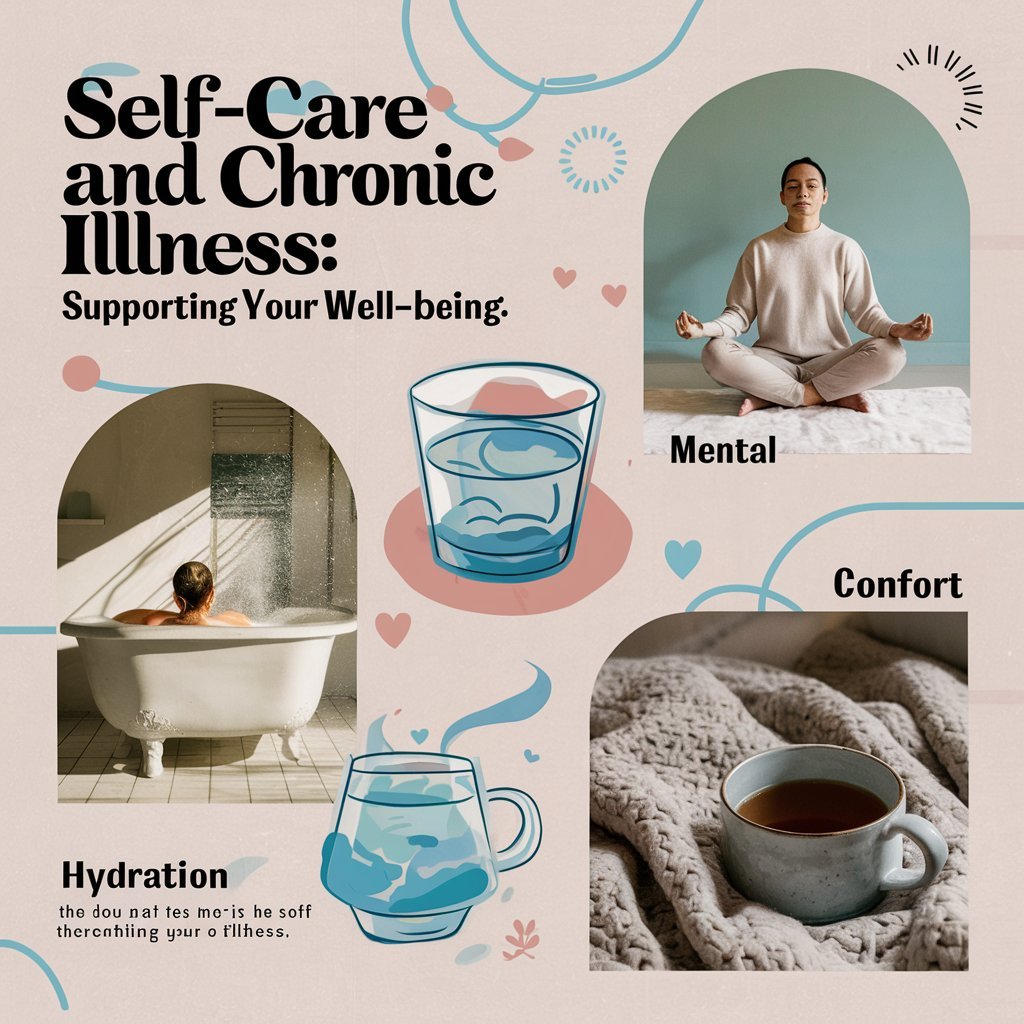Self-Care and Chronic Illness: Supporting Your Well-being
Hey there, my young and resilient friends of 2024! It’s your favorite self-care explorer, Nita Sharda, here to take you on an important journey into the world of self-care and chronic illness. Now, I know what you might be thinking – “Chronic illness? That sounds scary and overwhelming!” But trust me, with a little bit of self-care and a lot of support, you’ve got this!
Today, we’re going to put on our explorer hats and discover what self-care and chronic illness are all about, and how they can help us support our well-being, even in the face of ongoing health challenges. But before we dive in, let me make one thing clear – this is not about putting anyone on the spot or making them feel like they need to be perfect. It’s simply about empowering you with the knowledge and tools to take care of yourself and live your best life, no matter what challenges you may face.
So, are you ready to join me on this self-care and chronic illness adventure? Let’s go!
What is Self-Care?
First things first, let’s talk about what self-care actually is. Self-care is the practice of taking care of ourselves – physically, mentally, emotionally, and spiritually. It’s about doing things that make us feel good, help us recharge, and support our overall wellbeing.
Self-care can look different for everyone, but some common examples include:
- Getting enough sleep and rest
- Eating nutritious foods that fuel our bodies
- Exercising and moving our bodies in ways that feel good
- Taking breaks and doing things we enjoy, like reading, playing, or creating art
- Practicing relaxation techniques like deep breathing or meditation
- Expressing our feelings and needs in healthy ways
- Setting boundaries and saying no when we need to
The key to self-care is listening to our bodies and minds, and doing what feels right for us in the moment. It’s not about being selfish or indulgent, but rather about taking responsibility for our own wellbeing so that we can show up as our best selves in all areas of our lives.
Why is Self-Care Important for Chronic Illness?
So, why is self-care so important, especially when it comes to chronic illness? Here are a few key reasons:
It Helps Us Manage Symptoms and Side Effects
One of the key benefits of self-care is that it helps us manage the symptoms and side effects of chronic illness. When we take care of ourselves regularly and do things that support our overall wellbeing, we’re better equipped to cope with pain, fatigue, and other physical and emotional challenges that can come with ongoing health issues.
This can be especially important for young people who are still learning how to navigate the ups and downs of chronic illness. By practicing self-care regularly, we’re building the inner strength and resilience we need to manage our symptoms and side effects with greater ease and grace.
It Boosts Our Immune System and Overall Health
Self-care is also important for boosting our immune system and overall health. When we take care of ourselves regularly and do things that promote physical and emotional wellbeing, we’re better equipped to fight off infections, illnesses, and other health challenges that can arise.
This can be especially important for young people who may be more vulnerable to illness and infection due to their chronic health conditions. By practicing self-care regularly, we’re building the inner resilience and physical strength we need to stay healthy and thrive, even in the face of ongoing health challenges.
It Promotes Emotional Wellbeing and Resilience
Finally, self-care is important for promoting emotional wellbeing and resilience. When we take care of ourselves regularly and do things that make us feel good and supported, we’re better equipped to cope with the emotional ups and downs that can come with chronic illness.
This can be especially important for young people who may be struggling with feelings of isolation, anxiety, or depression related to their health challenges. By practicing self-care regularly, we’re building the inner strength and emotional intelligence we need to navigate the challenges of chronic illness with greater ease and resilience.

What is Chronic Illness?
Now that we’ve talked about self-care, let’s explore the concept of chronic illness. Chronic illness is a term used to describe a wide range of health conditions that last for a long time, often for life, and can have a significant impact on a person’s physical, emotional, and social wellbeing.
Some common examples of chronic illnesses include:
- Asthma
- Diabetes
- Epilepsy
- Juvenile arthritis
- Cystic fibrosis
- Sickle cell anemia
- Inflammatory bowel disease (IBD)
- Chronic fatigue syndrome (CFS)
- Fibromyalgia
Chronic illnesses can vary in severity and impact, but they all share some common challenges, including ongoing symptoms, frequent medical appointments and treatments, and the need for ongoing self-care and support.
Why is Chronic Illness Challenging for Young People?
So, why is chronic illness so challenging, especially for young people? Here are a few key reasons:
It Can Be Isolating and Lonely
One of the biggest challenges of chronic illness for young people is that it can be isolating and lonely. When we’re dealing with ongoing health challenges, it can be hard to keep up with our friends and social activities, and we may feel like we’re missing out on important parts of childhood and adolescence.
This can be especially challenging for young people who may already be struggling with feelings of self-doubt or social anxiety. By practicing self-care and seeking out support from friends, family, and healthcare providers, we can help combat feelings of isolation and loneliness, and build a strong network of support and connection.
It Can Be Physically and Emotionally Draining
Chronic illness can also be physically and emotionally draining for young people. Dealing with ongoing symptoms, frequent medical appointments and treatments, and the need for ongoing self-care can be exhausting and overwhelming, especially when we’re also trying to keep up with school, extracurricular activities, and other important parts of our lives.
This can be especially challenging for young people who may be struggling with fatigue, pain, or other physical symptoms related to their chronic illness. By practicing self-care regularly and seeking out support from healthcare providers and other trusted adults, we can help manage the physical and emotional toll of chronic illness, and build the inner strength and resilience we need to thrive.
It Can Be Stigmatizing and Misunderstood
Finally, chronic illness can be stigmatizing and misunderstood, especially for young people. When we’re dealing with ongoing health challenges that may not be visible to others, it can be hard to feel understood or supported by our peers, teachers, or other important people in our lives.
This can be especially challenging for young people who may be struggling with feelings of shame or embarrassment related to their chronic illness. By practicing self-care and seeking out support from trusted friends, family members, and healthcare providers, we can help combat stigma and build a strong sense of self-worth and self-acceptance, even in the face of ongoing health challenges.
Supporting Your Well-being through Self-Care and Chronic Illness Management
So, how can we bring self-care and chronic illness management together to support our well-being and live our best lives, even in the face of ongoing health challenges? Here are a few key strategies:
Develop a Self-Care Plan with Your Healthcare Team
The first step in supporting your well-being through self-care and chronic illness management is to develop a self-care plan with your healthcare team. This means working with your doctors, nurses, and other healthcare providers to identify the self-care strategies that are most important for managing your specific health needs and challenges.
Some tips for developing a self-care plan with your healthcare team include:
- Keeping track of your symptoms, medications, and other important health information
- Asking questions and advocating for your needs during medical appointments
- Working with your healthcare team to set realistic goals and expectations for your health and wellbeing
- Seeking out additional support and resources, such as support groups or counseling services, as needed
By developing a self-care plan with your healthcare team, you’re taking an active role in your own health and wellbeing, and building the skills and strategies you need to thrive, even in the face of ongoing health challenges.
Prioritize Rest and Relaxation
The next step in supporting your well-being through self-care and chronic illness management is to prioritize rest and relaxation. This means taking the time to recharge and rejuvenate, both physically and emotionally, and giving your body and mind the rest and support they need to heal and thrive.
Some tips for prioritizing rest and relaxation include:
- Getting enough sleep and taking regular breaks throughout the day
- Practicing relaxation techniques like deep breathing, meditation, or yoga
- Engaging in hobbies or activities that bring you joy and help you de-stress
- Spending time in nature or other calming environments
- Seeking out support from friends, family, or other trusted adults when you need a break or a listening ear.













Leave a Reply